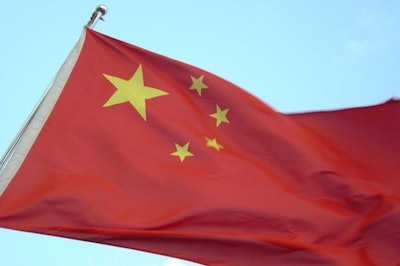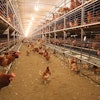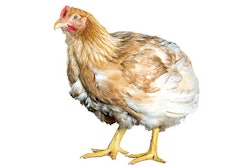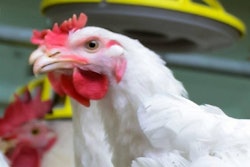
China has suspended imports from an OK Foods poultry plant in Fort Smith, Arkansas, citing a high number of COVID-19 cases among workers at the plant.
The Asian country’s decision to suspend imports from that plant follows similar action it took against a Tyson Foods poultry plant in Springdale, Arkansas, on June 21. That suspension remains in place.
The ban on the import of products from the O.K. Foods plant was effective September 13, according to the U.S. Department of Agriculture.
Jim Sumner, president of the USA Poultry & Egg Export Council (USAPEEC), said his organization learned of the delisting of the OK Foods plant the same day it was announced. China’s decisions to delist both the OK Foods and Tyson Foods plants were surprising, Sumner said.
“We’re working both with OK Foods and with Tyson in hopes of getting these suspensions − which we feel are unjustified − removed,” said Sumner.
USAPEEC feels those suspensions are unjustified, Sumner said, because there is no scientific proof that COVID-19 can be transmitted through the products.
“Just the fact that you have detected workers as testing positive, that doesn’t mean that the product being produced in that plant is not safe and wholesome,” said Sumner.
“Almost all companies have a screening process for their employees, and if they test positive or are suspected, then they are not working on the line. Plus, on top of that, there’s been research conducted in China and Germany, and it’s been collaborated here in the United States, that the coronavirus cannot be transmitted in poultry or poultry meat.”
Dean Banks, president and CEO-elect of Tyson Foods, said on August 3 that the company was actively communicating with the governments of China and the United States in hopes that the Springdale plant will regain eligibility to export to China.
“We’ve been interacting with (Chinese officials) and making sure that they have all the information they need about the precautionary measures, the protective measures, that that plant has taken,” said Banks. “We’re just doing everything we can -- as usual -- to be transparent and interactive. We’d love to continue to export products from that facility, but that’s in the hands of the Chinese government.”
The plant suspensions come just months after the Chinese government lifted a ban on all poultry products in the United States. That ban, placed over concerns related to avian influenza, had been in place since 2015.
Sumner said he hopes these will be the only two U.S. poultry plants to be delisted, and that China is a valued trade partner with the U.S. poultry industry. In an earlier WATT Poultry Chat interview, Sumner called China’s importance to the U.S. poultry industry “truly unbelievable,” and noted that during the first six months of 2020, China had shipped 200,000 tons of broilers to China, amounting to nearly $300 million. He added that shipments of turkey and duck to China had also been substantial since the 2015 ban was lifted.
OK Foods is a subsidiary of Mexico-based poultry company Industrias Bachoco, the largest broiler company in Mexico and the tenth largest in the world. OK Foods, which processed 15 million pounds of ready-to-cook chicken on a weekly basis in 2019, was acquired by Bachoco in 2011.
View our continuing coverage of the coronavirus/COVID-19 pandemic.

















